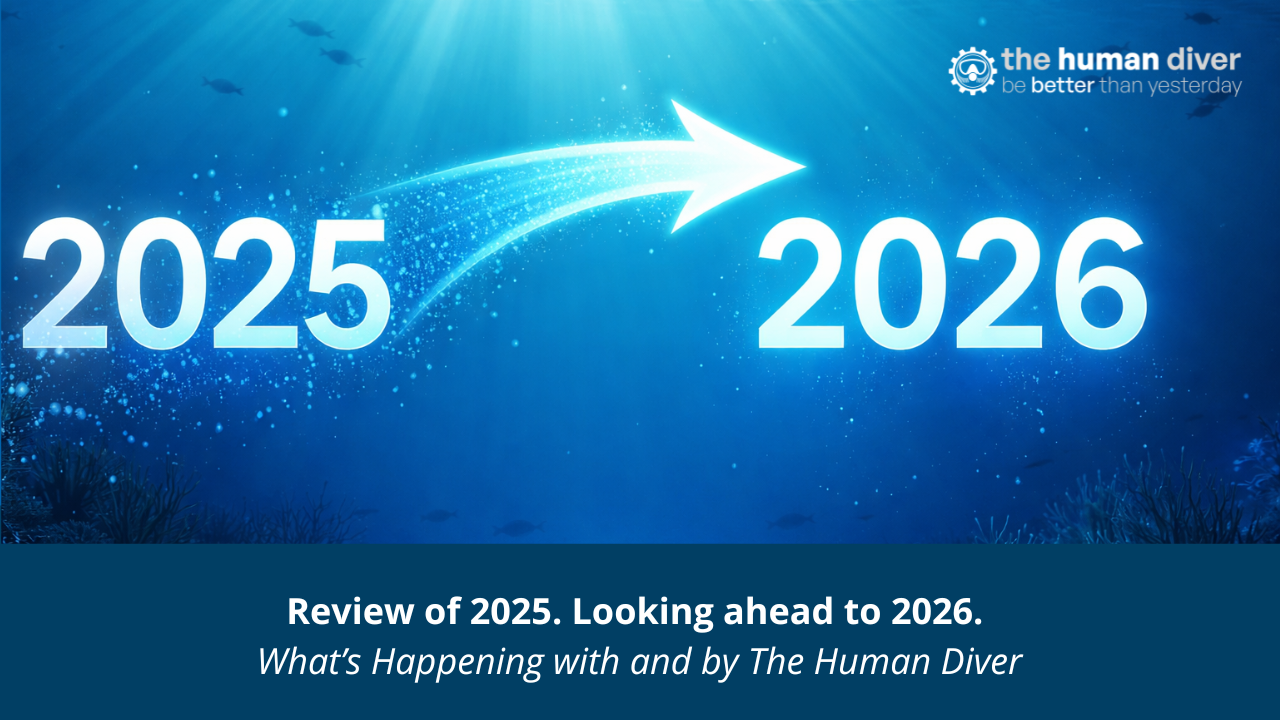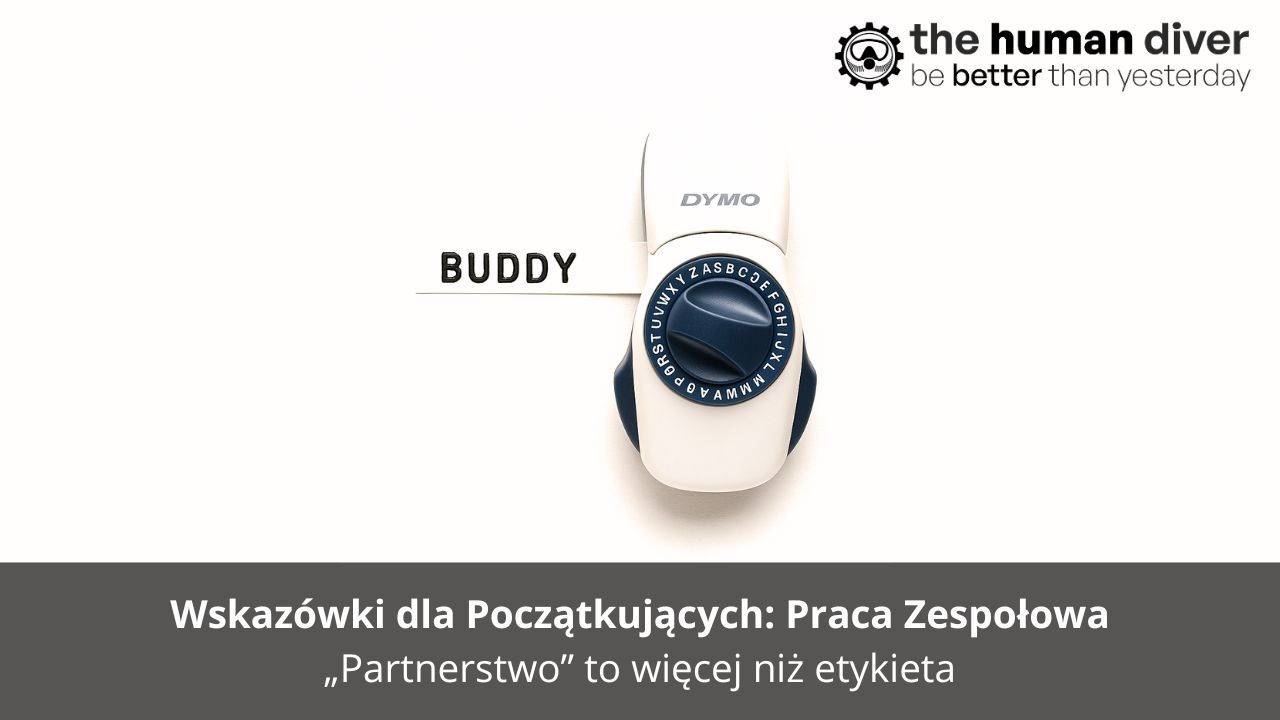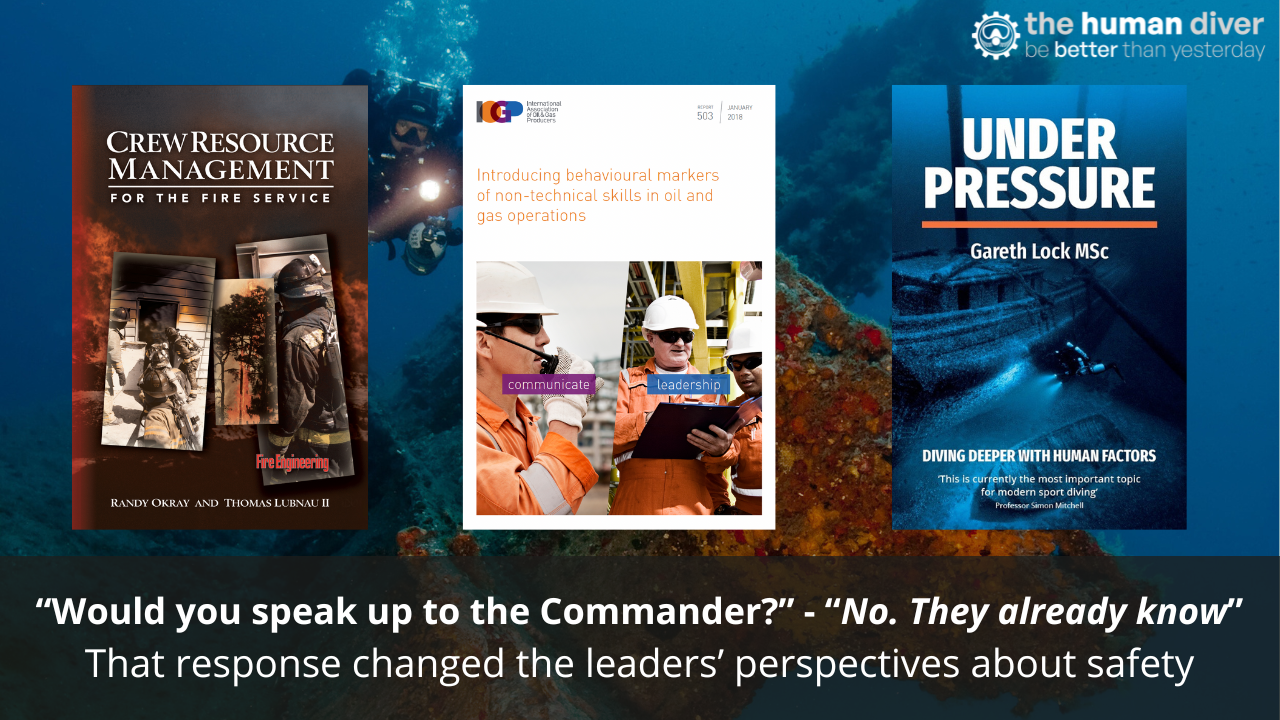
What do we mean by experience?
Apr 24, 2024When we published the blog about learning 2 weeks ago we got a few responses discussing “experience”. It is generally accepted that after initial training, we continue learning through experience. But what exactly do we mean by that?
It’s a question I get asked frequently after courses, especially when students are looking to move on to the next level. Sometimes there are prerequisites about the number of dives required before they take the next class but often those are fairly low numbers. This is one of the problems with stating a minimum number of dives- we forget it’s a minimum not a target. So as soon as someone has the “required” 50 dives (or whatever the number is), they believe they are ready. I used to see this a lot prior to Instructor courses, when Divemasters who’d finished their DM course with 60 dives needed 100 to begin their instructor course. They would quite often be limited on time, and needing to fit in with class schedules, which meant if they didn’t get the number of dives in time they wouldn't be able to start until the next class which was normally several months later. So in order to “build dives”, they would kit up, and enter the water and descend. After twenty minutes (the minimum time a “dive” could be logged at) they would ascend, look at their buddy and go straight back down. This would be repeated until they ran out of gas or time. In this way they could log up to around 12 dives a day, completing the required number of dives in as little as 4 days. They’d seen two “targets”- the minimum number of dives and the minimum dive time, and having hit them believed that they’d done enough. Most of us can see the flaw here- doing that number of dives in that short a time wouldn’t really give them real life dive experience. They’d have been diving in warm, clear water with good vis and no current. They’d likely do the dives in the same site, and not go very deep (below 6m was considered a dive, and going too deep would have been risking DCS when you’re doing that many dives).

Contrast this with a DM who’s done forty dives after finishing their DM course assisting students and guiding divers. One who’s gone to different sites, with different conditions and different depths. They’ve had to navigate, assist students who are struggling, and watch an instructor demonstrate and correct skills. Same number of dives, but much more valuable experience.
Solving problems and recognising and correcting mistakes is a huge part of building experience. We learn every time we make a mistake. We learn new ways of dealing with it, and pick up more “tools” to put in our mental tool box. The most experienced divers can deal with most situations not because they’re the best diver but because they’ve seen it before and have a model of how to deal with it. Even if it’s not the exact same problem, if they have seen something similar it will normally be enough for them to work out how to work out a solution.
New instructors often struggle with group control. Looking after a group of novices is tricky in any situation but when they’re in a hostile environment that doesn’t support life, such as underwater, it becomes even more difficult. Add in not being able to see very far and their lack of control over their movement, and it’s amazing anyone can handle more than one student at a time. A divemaster who’s assisted on lots of open water courses has the experience of seeing how an instructor manages the students. One who hasn’t has to learn from scratch and may not ever see anyone else teaching to learn the techniques from. They’ve missed out on that very valuable experience.
The same goes at every level. A newly qualified Open Water diver moves straight onto their Advanced course. At this point, do they really have enough control over their buoyancy to have capacity to complete more advanced skills such as navigating, taking photos or using more advanced equipment like sidemount or a rebreather? And what about their situation awareness? As they’re staring at their compass are they aware they’re slowly descending? Or kicking the coral behind them while trying to take a photo of a fish? Or stirring up a dust storm with their fins as they struggle to switch regs on sidemount?

We can think of it as length x breadth of experience. Someone may have 30 years and thousands of dives, but if they’re all in a similar environment doing similar activities, their breadth is very limited. Whereas a newer diver with fewer dives may have a wide range of locations, doing very different types of diving and therefore a good amount of breadth. A diver that’s done 100 dives following a DM or instructor probably won’t be as competent as one who’s dived independently, with a similarly qualified buddy. Who do you think will be a better instructor, a super experienced diver who’s never taught anything or a teacher who has fewer dives? Of course, some people take to things naturally, that’s where the minimum numbers come from. But if they’re at the top end of the scale, we can’t all be up there. As Dunning and Kruger stated, statistically even if we all think we’re above average, we can’t possibly be!
Summary
Minimums can’t be seen as targets. To gain proper experience we need to consider the quality of each dive, as well as the quantity. The same dive 100 times isn’t the same as 100 dives. Mistakes are valuable, the more mistakes that are recognised and corrected and the more problems that are solved, the more experience you can be said to have. Variation is key- variation in dive sites, depth, visibility, temperature, current, entry method etc. Finally, we can’t all be above average!
Click here for more about why we need experience.

Jenny is a full-time technical diving instructor and safety diver. Prior to diving, she worked in outdoor education for 10 years teaching rock climbing, white water kayaking and canoeing, sailing, skiing, caving and cycling, among other sports. Her interest in team development started with outdoor education, using it as a tool to help people learn more about communication, planning and teamwork.
Since 2009 she has lived in Dahab, Egypt teaching SCUBA diving. She is now a technical instructor trainer for TDI, advanced trimix instructor, advanced mixed gas CCR diver and helitrox CCR instructor.
Jenny has supported a number of deep dives as part of H2O divers dive team and works as a safety diver in the media industry.
If you'd like to deepen your diving experience, consider taking the online introduction course which will change your attitude towards diving because safety is your perception, visit the website.
Want to learn more about this article or have questions? Contact us.










